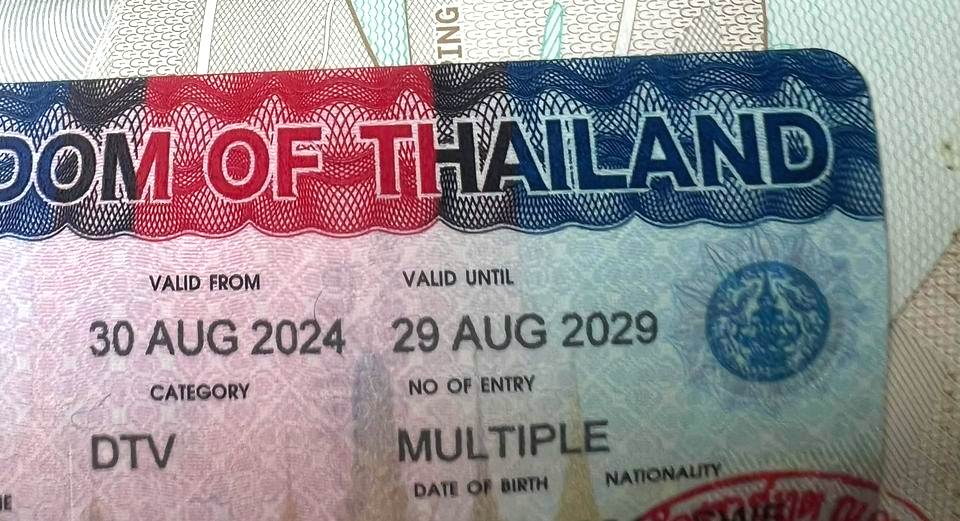
The latest visa is off to a good start, but there are issues down the line.
DTV has got off to a splendid start according to the Thai foreign minister Maris Sangiampongsa. Whilst there are no official statistics, social media bloggers suggest that between 1,500 and 2,500 have been issued in the 10 weeks since the launching. The question on the horizon is what happens to DTV holders when their initial six months are exhausted, that is assuming they want to stay in Thailand.
Tod Daniels, top contributor to the popular Facebook group destinationthailandvisa, sums up the problem. “How about we wait until December or January when the first people who got a DTV start reporting on how it will actually work and what is required?” he wrote. There will be, of course, two choices: to quit the country and return or to seek an extension at local immigration, both offering a further 180 days.
Either route has issues. As Integrity Legal’s popular videos on YouTube often remind us, DTV is not actually a guaranteed entry five-year visa. The validity of the visa – when you can use it – is five years and it’s true the visa is marked “multiple”. Last July, the Tourist Authority of Thailand’s (TAT) spokesman at the launch said that subsequent entries and extensions would not require more documentation as far as TAT was concerned, but it was open to immigration officers to request more paperwork at local offices (for extensions) or at airports and border posts (for subsequent entries to Thailand).
The silence of the immigration bureau, which controls entries and extensions, has been truly deafening during the DTV post-launch period. There is little doubt that there is the potential for abuse in DTV applications. Some digital nomads, technically working for an overseas company, are believed to have Thai customers contrary to work permit legislation. Soft power has been stretched very far, as instanced by the fact that attending pop concerts or having a dental appointment could qualify for long visa status. In theory anyway.
Dozens of Thai embassies worldwide are currently issuing DTVs, but the paper requirements vary. Some but not all require a bank account of at least three months standing. Others require the naming of a Thai guarantor and the evidence of the applicant’s work-related activity in the past. Some embassies require the cookery classes to last up to six months, others three, whilst the documents needed for the registration of the Thai boxing academy are far from uniform. There are lots of embassy-related discrepancies detailed by members of the Facebook group.
Yet the likelihood is that nothing much of significance will happen soon. The prospect of DTV holders at immigration offices, airports and border posts being quizzed by officers about fresh paperwork is a recipe for daily, chaotic delays for the queuing public. Meanwhile, the government says it is working to combine different immigration data bases which will likely take most of next year to finalize. There is also an ongoing inter-departmental working party on reducing the number of non-immigrant visas which could impact DTV. There is no doubt DTV will be reformed, and likely restricted, in the light of experience. But perhaps not in 2025.